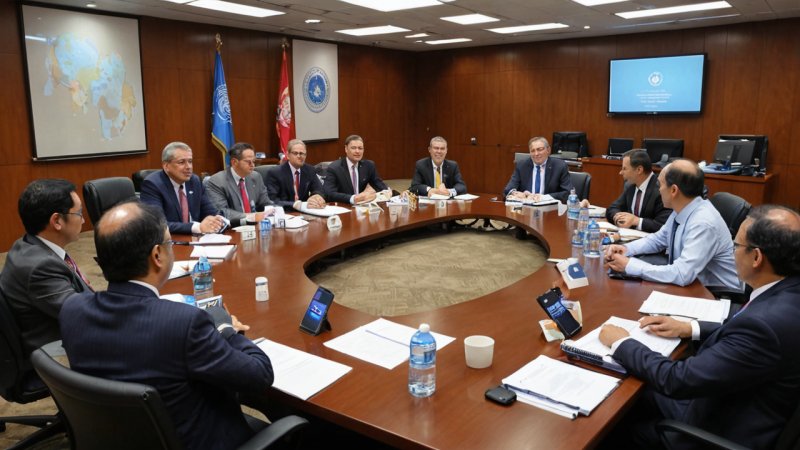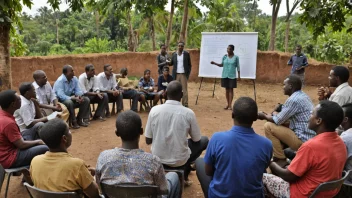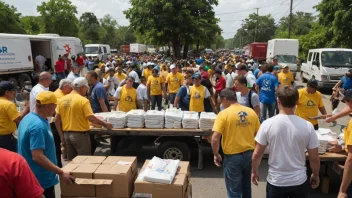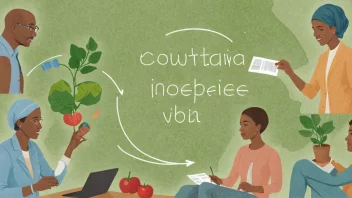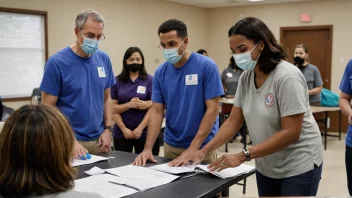Disaster response is a critical component of humanitarian aid, and international organizations play a vital role in coordinating efforts to assist affected communities. From natural disasters like earthquakes and hurricanes to man-made crises such as conflicts and pandemics, these organizations mobilize resources, expertise, and support to alleviate suffering and promote recovery.
What are international organizations?
International organizations are entities established by multiple countries to work collaboratively on common objectives, usually related to humanitarian aid, development, and social justice. Examples include the United Nations (UN), the International Red Cross, and Médecins Sans Frontières (Doctors Without Borders).
How do international organizations respond to disasters?
International organizations respond to disasters through a systematic approach that includes:
- Assessment: Evaluating the needs of affected populations.
- Coordination: Collaborating with local governments and NGOs to ensure an effective response.
- Resource mobilization: Gathering financial, material, and human resources to provide aid.
- Implementation: Delivering assistance such as food, shelter, healthcare, and psychological support.
- Recovery and rebuilding: Supporting long-term recovery efforts to restore communities.
What types of assistance do they provide?
International organizations provide a wide range of assistance, including:
- Emergency relief: Immediate food, water, and medical care.
- Shelter: Temporary housing solutions for displaced individuals.
- Healthcare: Medical services, vaccinations, and mental health support.
- Education: Initiatives to ensure children can continue their education in crises.
- Livelihood support: Programs to help communities rebuild their economies.
How can individuals support international organizations in disaster response?
Individuals can support international organizations in several ways:
- Volunteering: Offering your time and skills to local or international organizations.
- Advocacy: Raising awareness about disaster response issues and the work of these organizations.
- Education: Learning about global issues and sharing knowledge with others.
- Community involvement: Participating in local initiatives that align with the goals of international organizations.
What challenges do international organizations face in disaster response?
International organizations encounter various challenges during disaster response, such as:
- Access: Difficulty reaching affected areas due to damaged infrastructure or security concerns.
- Coordination: Ensuring all stakeholders are aligned can be complex, especially in large-scale disasters.
- Funding: Securing adequate funding to sustain operations can be a significant hurdle.
- Cultural sensitivity: Understanding local customs and needs is essential for effective aid delivery.
What is the importance of international collaboration in disaster response?
International collaboration is crucial in disaster response for several reasons:
- Resource sharing: Pooling resources from multiple countries enhances the overall response capacity.
- Expertise: Diverse skill sets and experiences contribute to more effective solutions.
- Global awareness: Collaborative efforts raise awareness of global issues and foster solidarity among nations.
- Preventing future crises: Working together can lead to better preparedness and mitigation strategies.
How do international organizations ensure accountability?
Accountability is vital for maintaining trust and effectiveness. International organizations ensure accountability through:
- Transparency: Regularly publishing reports on activities and spending.
- Monitoring and evaluation: Assessing the impact of programs and making adjustments as necessary.
- Feedback mechanisms: Encouraging beneficiaries to voice their opinions and experiences.
In conclusion, international organizations are essential players in disaster response, providing necessary assistance and support to affected communities. By understanding their roles and challenges, individuals can find meaningful ways to get involved and advocate for humanitarian efforts worldwide. Together, we can make a difference in times of crisis.
